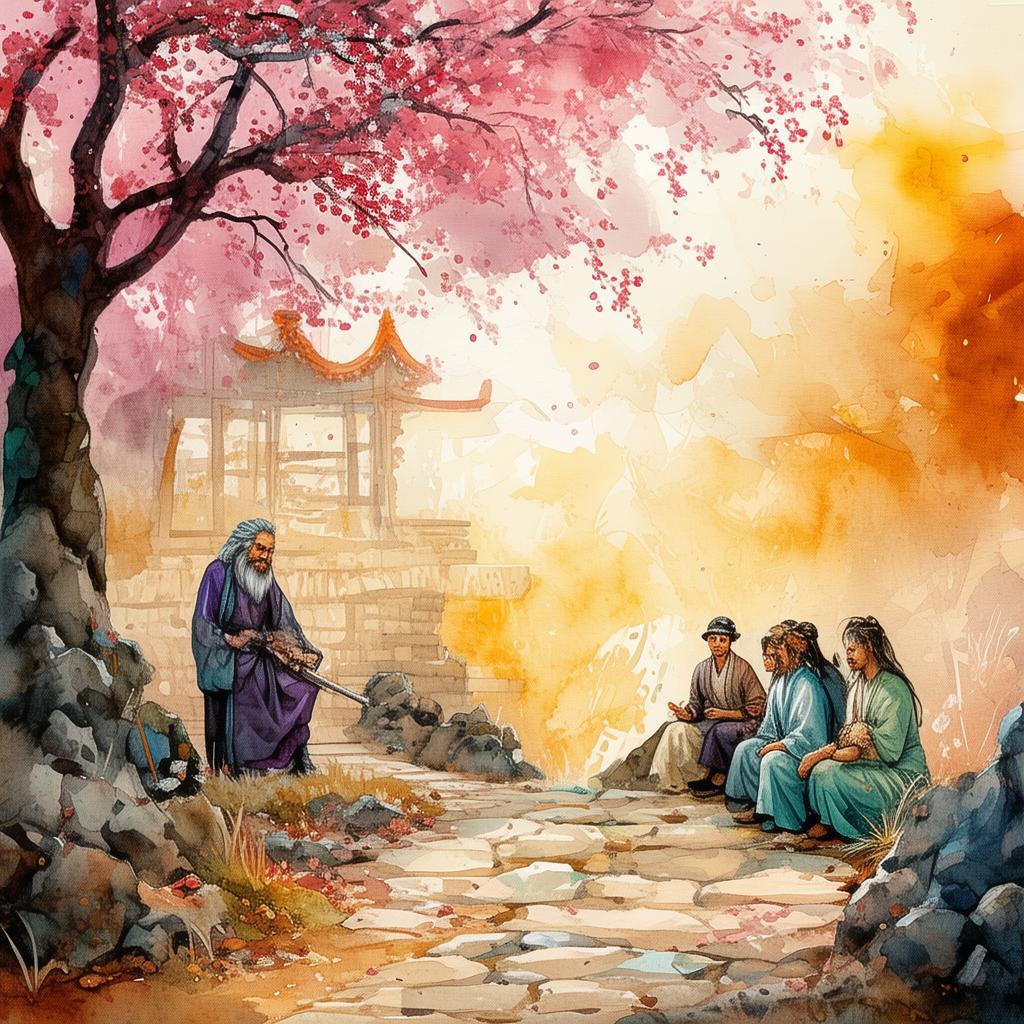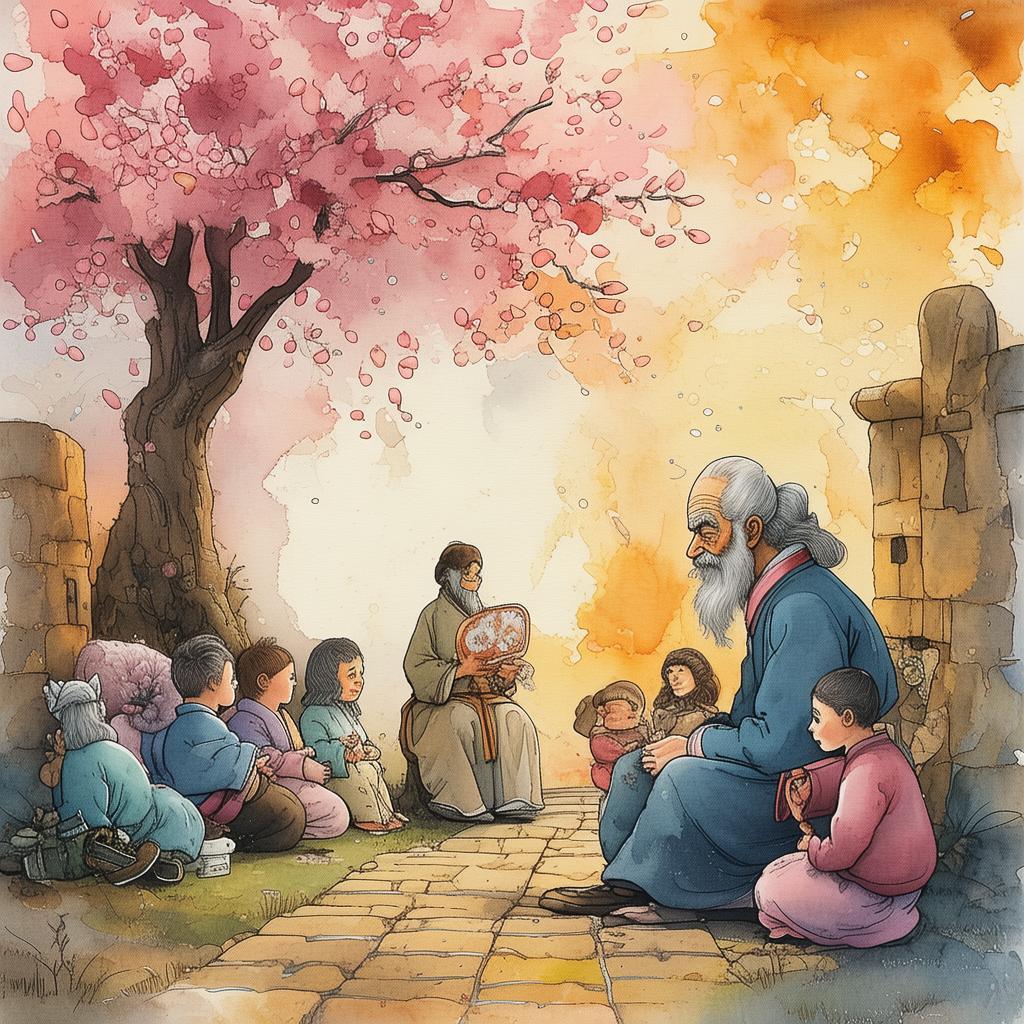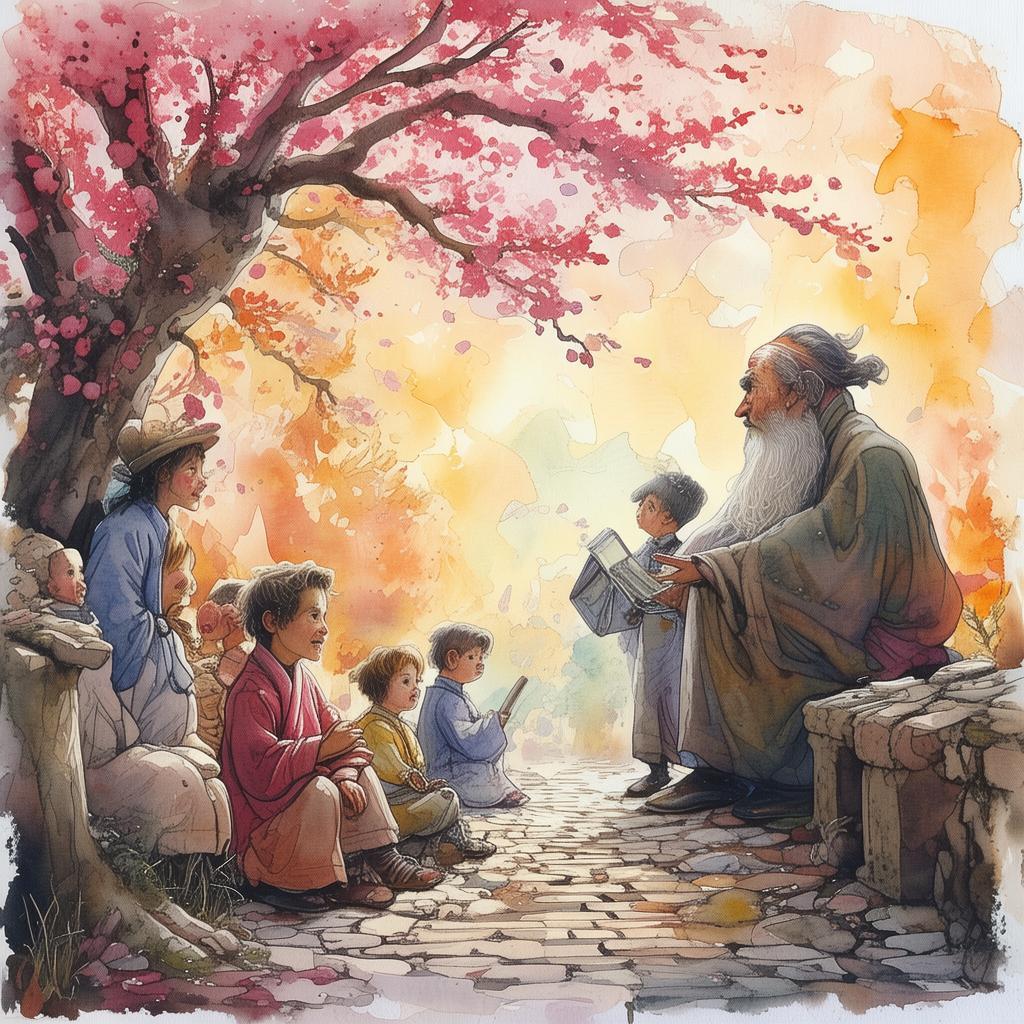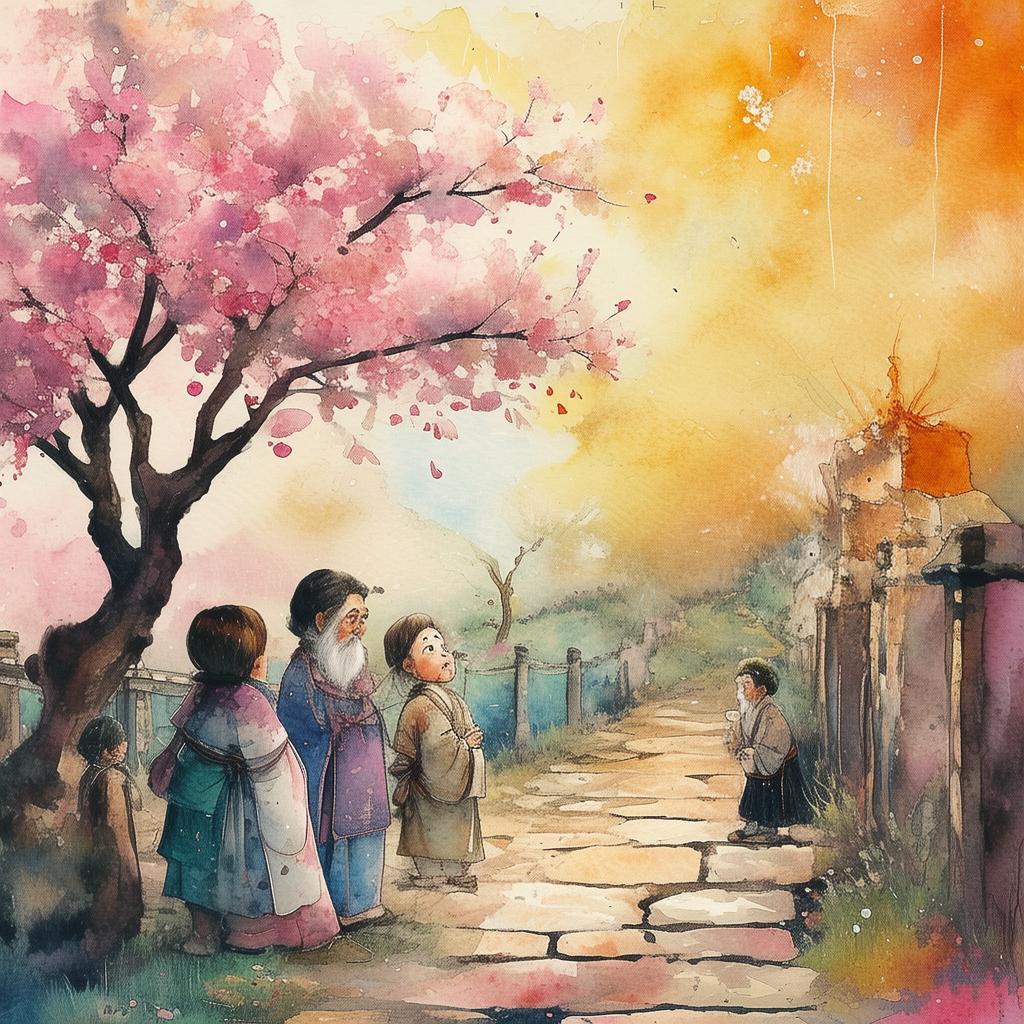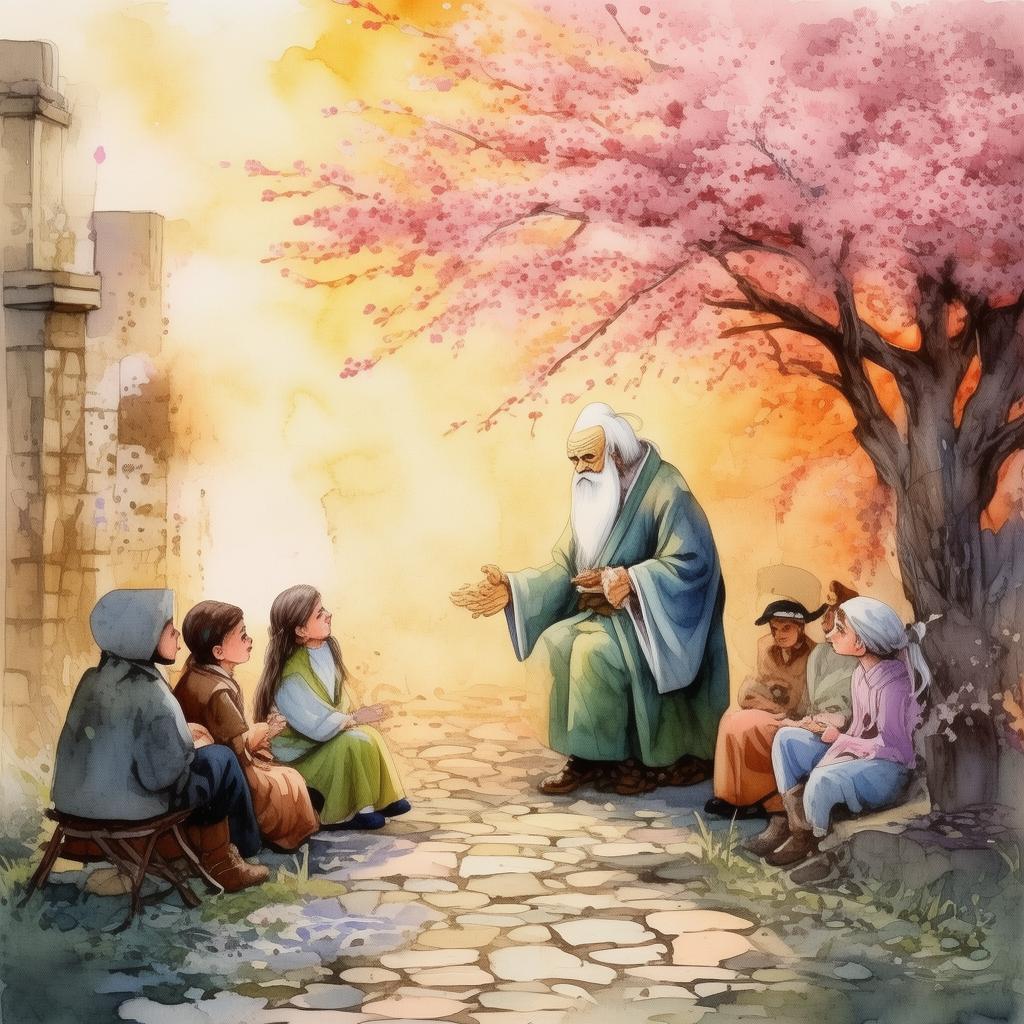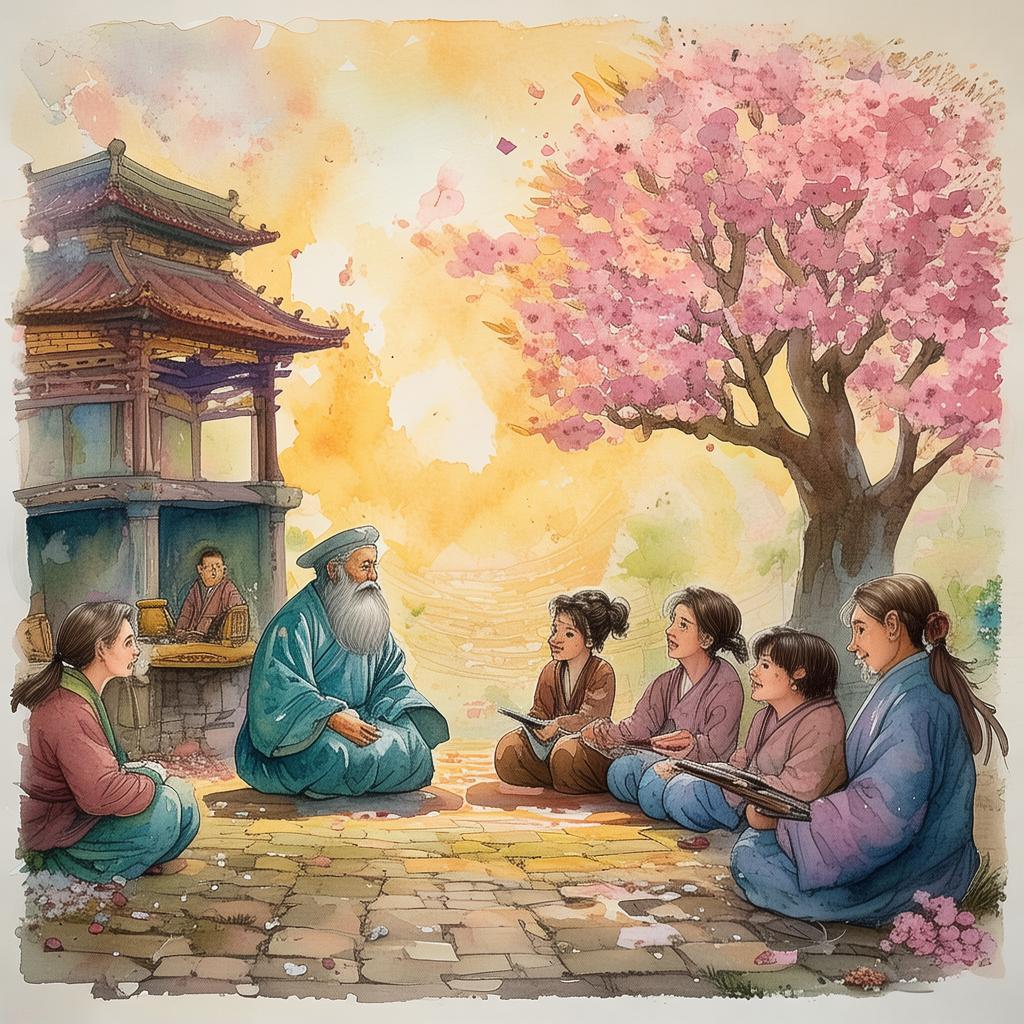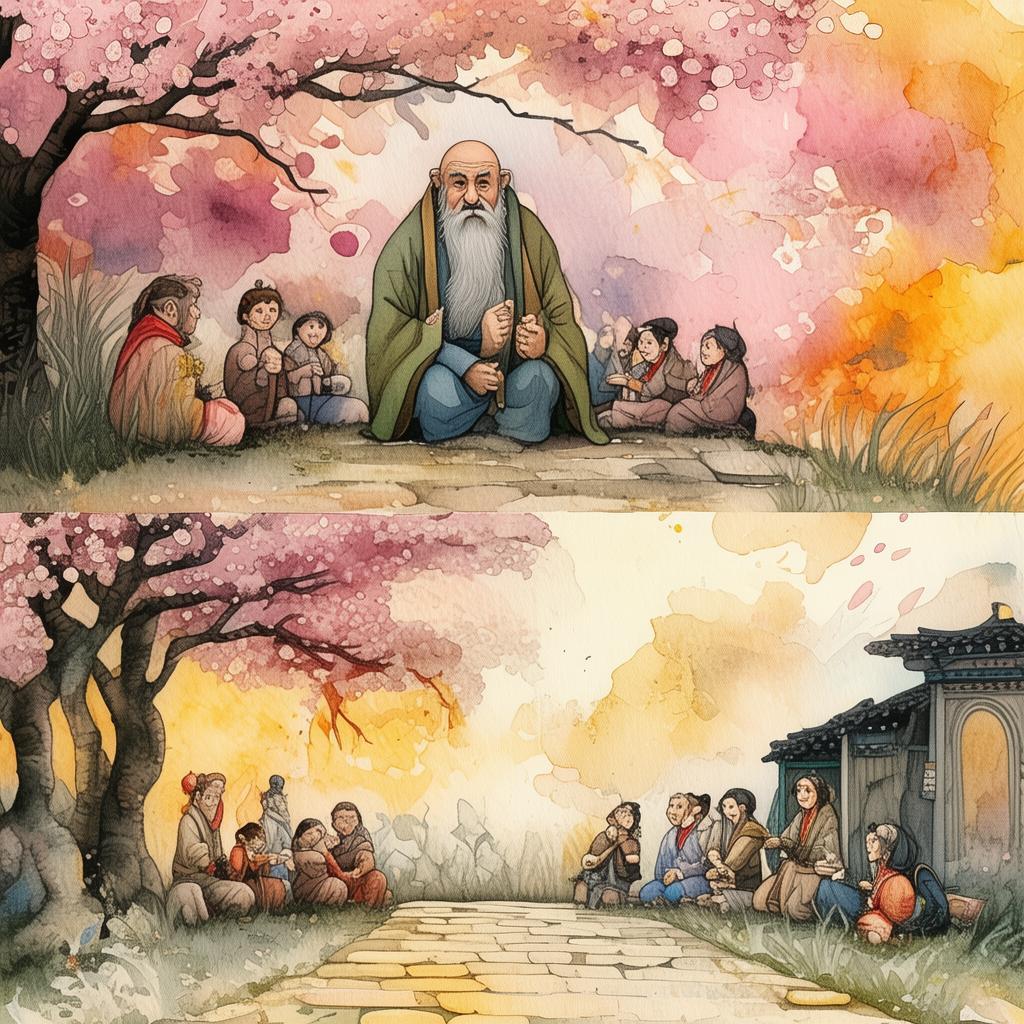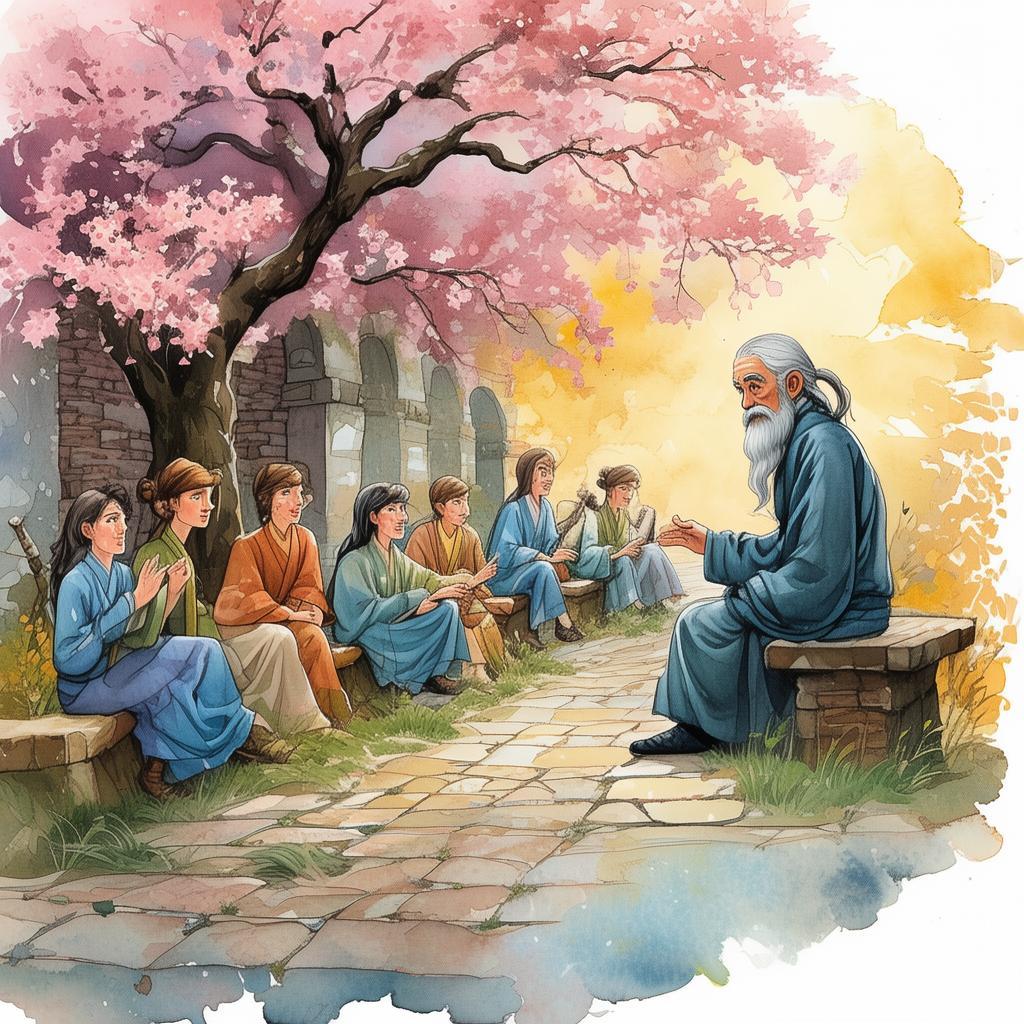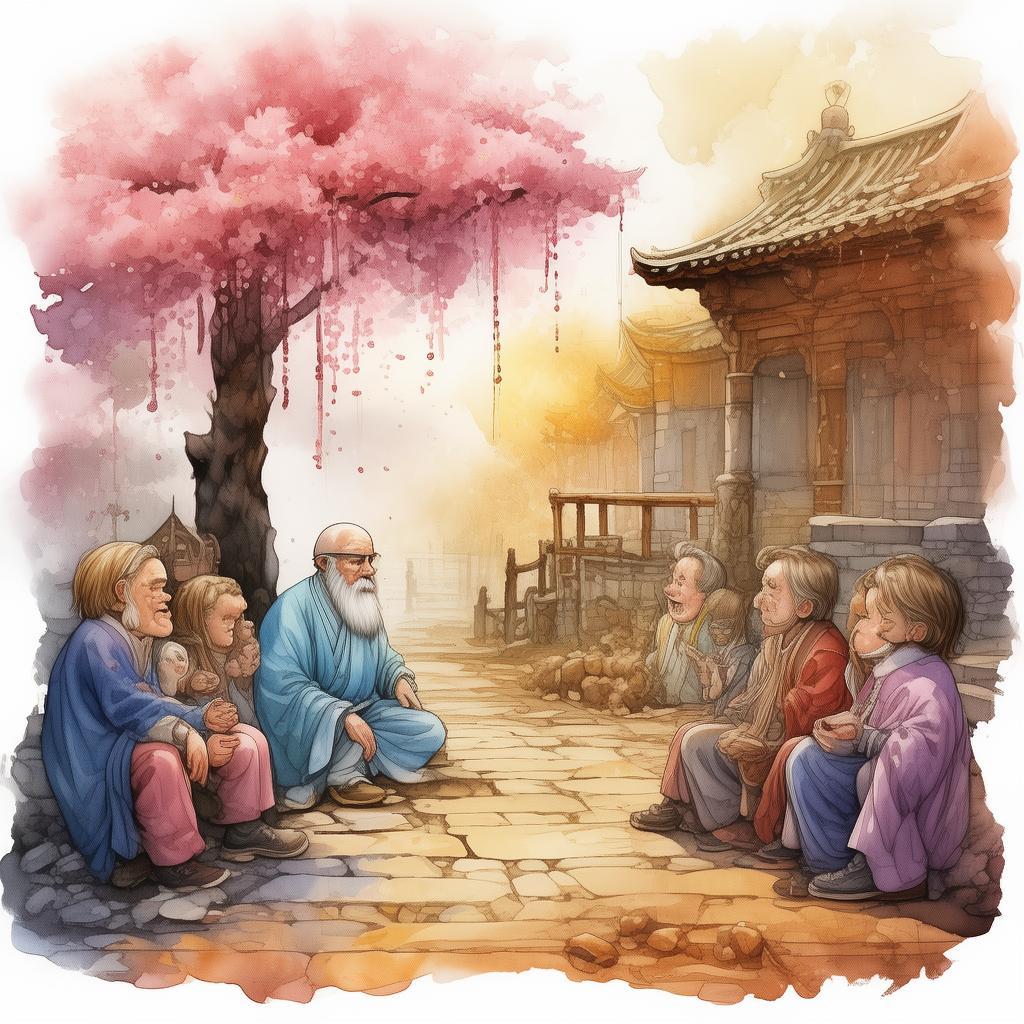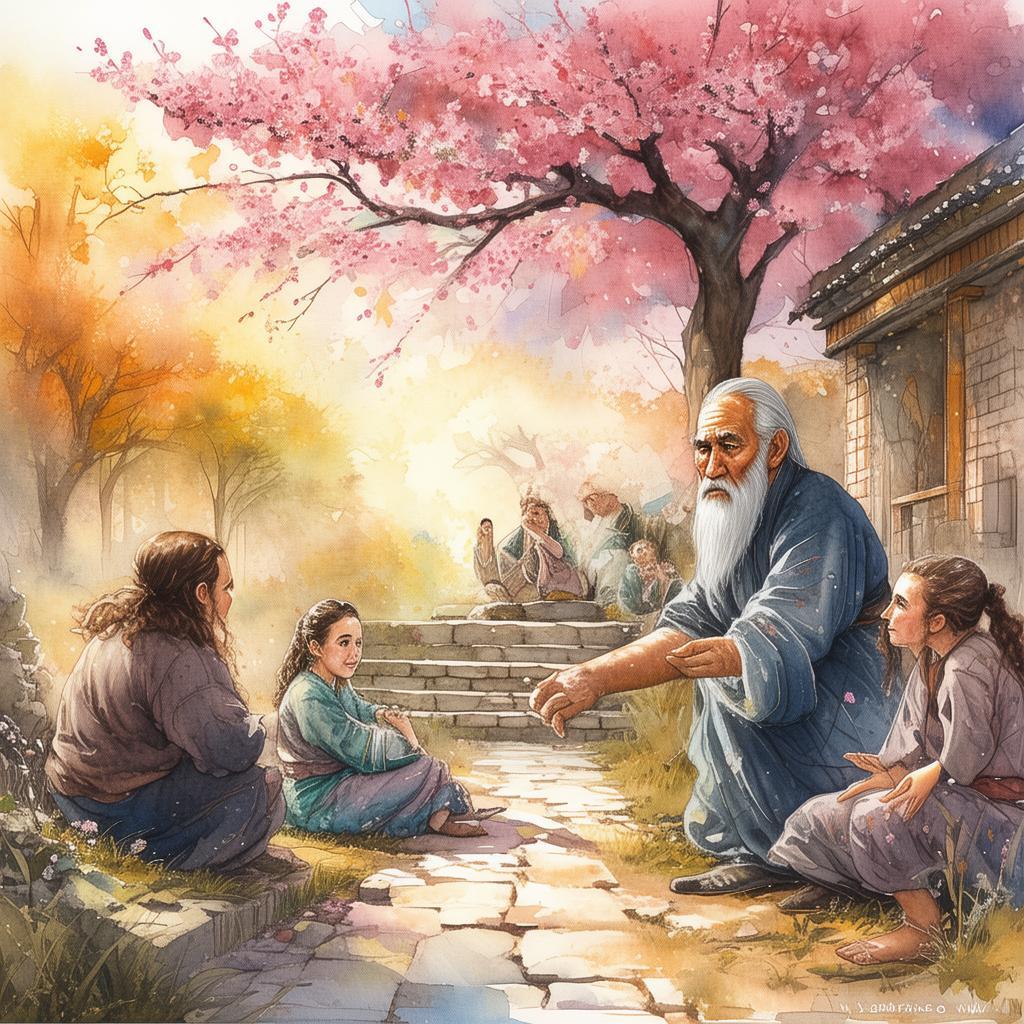Flavors of Deceit: The Chef's Dilemma
In the bustling heart of ancient China, there was a chef named Li who was known far and wide for his culinary prowess. His dishes were said to be so divine that they could make the gods themselves weep with joy. Li's journey was not just about cooking; it was a quest for the ultimate taste, a taste that could transport him to the heavens, according to an ancient legend.
One fateful day, Li received an invitation from the Emperor himself. The Emperor, a connoisseur of fine cuisine, had heard tales of Li's extraordinary talent and had decided to test him. The challenge was simple yet daunting: to create a dish that would embody the essence of the heavens.
Li spent days in contemplation, tasting the air, the soil, the very essence of his surroundings. He sought inspiration in the mountains, the rivers, and the fields, believing that the true taste of the gods lay hidden in the world around him. It was during one of his excursions that he stumbled upon an ancient scroll, hidden in a cave, that spoke of a secret ingredient that could elevate any dish to the heavens.
The scroll spoke of a rare herb, the "Heavenly Tasting Grass," which grew only in the highest peaks and could only be harvested under the light of the full moon. The herb was said to possess a flavor so potent that it could transform the simplest of ingredients into a celestial delight.
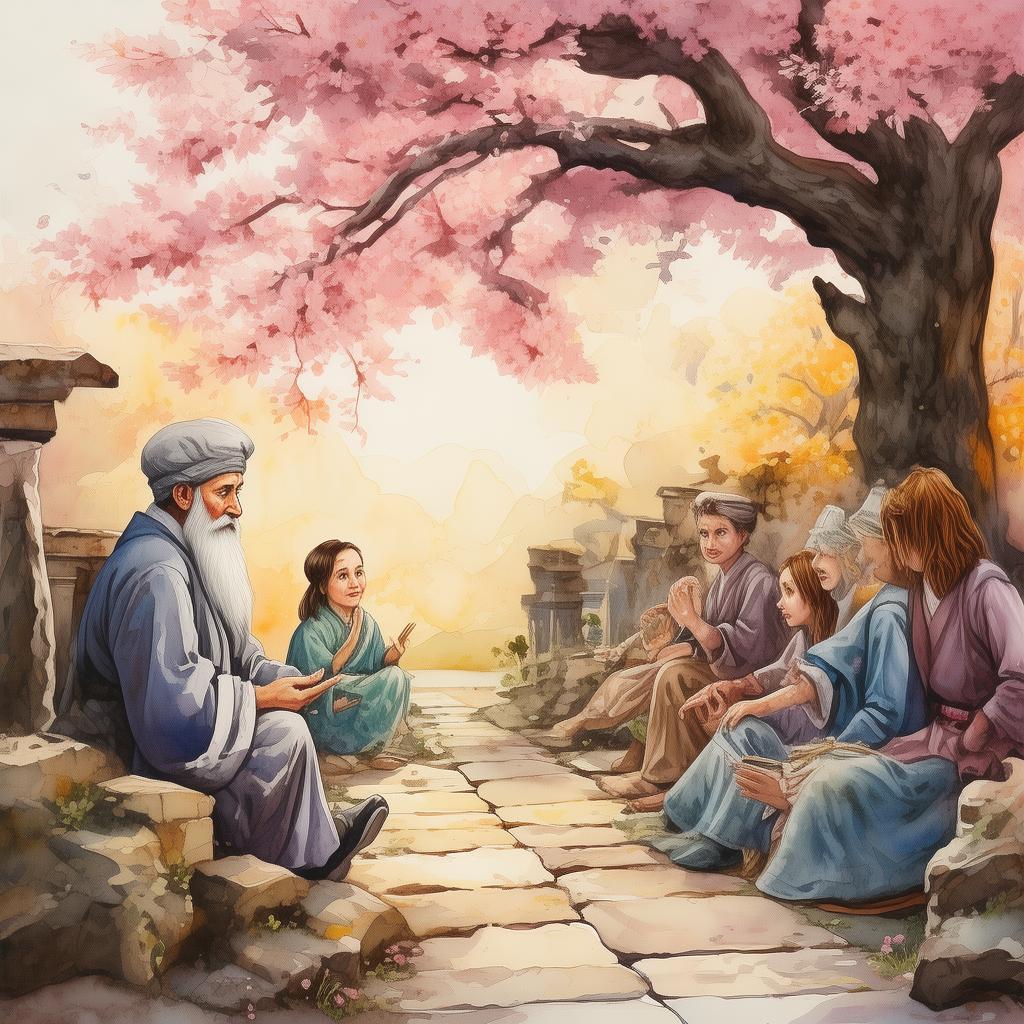
Li's heart raced with excitement. He knew that if he could find and use this herb, he would not only win the Emperor's favor but also fulfill his lifelong dream of reaching the heavens through his culinary art. He set out immediately, determined to uncover the secret ingredient.
His journey was fraught with peril. The mountains were treacherous, and the path to the herb was shrouded in mystery. Li faced numerous challenges, from treacherous terrain to the cunning of poachers who sought the herb for their own gain. Each obstacle tested his resolve and his skills as a chef.
After weeks of hardship, Li finally reached the peak where the Heavenly Tasting Grass grew. The herb was indeed extraordinary, with a scent that filled his senses and a taste that seemed to resonate with the very essence of the heavens. He carefully harvested the herb, knowing that this was the moment of truth.
Back in the palace, Li prepared the dish with meticulous care. He combined the herb with the finest ingredients he had gathered from his journey, creating a dish that was both visually stunning and, he hoped, a taste of the gods.
The Emperor, accompanied by his court, tasted the dish. The room fell silent as the flavor of the dish washed over them, a wave of divine delight that seemed to transcend the physical world. The Emperor's eyes widened in awe, and he declared Li's dish a masterpiece.
However, as the excitement subsided, Li began to sense something was amiss. The Emperor's praise seemed overly enthusiastic, almost forced. Li's intuition told him that there was a deceit at play.
He discovered that the Emperor's chef, a rival who had always sought to outshine Li, had tampered with the dish. The rival had added a substance that mimicked the taste of the Heavenly Tasting Grass but was not the real thing. The Emperor, unaware of the deceit, had genuinely believed the dish was a taste of the heavens.
Li was torn. He could reveal the truth and risk his reputation, or he could keep silent and let the Emperor believe his dish had reached the heavens. In the end, Li chose silence. He understood that the pursuit of culinary perfection was not just about the taste but also about the journey and the integrity of the chef.
From that day on, Li's dishes remained extraordinary, but he no longer sought the taste of the heavens. Instead, he focused on the journey, the flavors of the earth, and the honest pursuit of culinary excellence. His legend grew, not because of the taste of the gods, but because of the honesty and integrity that guided his every move.
The story of Li, the chef who chose the journey over the legend, became a cautionary tale of deceit and culinary mastery. It was a reminder that the true taste of the gods lies not in the heavens but in the heart and soul of the chef, their dedication to the craft, and the integrity with which they serve their art.
✨ Original Statement ✨
All articles published on this website (including but not limited to text, images, videos, and other content) are original or authorized for reposting and are protected by relevant laws. Without the explicit written permission of this website, no individual or organization may copy, modify, repost, or use the content for commercial purposes.
If you need to quote or cooperate, please contact this site for authorization. We reserve the right to pursue legal responsibility for any unauthorized use.
Hereby declared.
